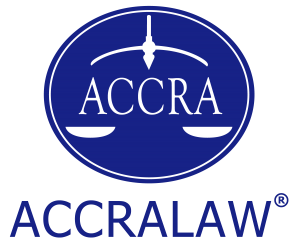
Social media platforms, such as Facebook, Twitter, YouTube, and TikTok, play a vital role in the dissemination of information, as well as in the discourse of opinions among Filipinos. According to We are Social’s 2021 Digital Report, the Philippines, known as the “social media capital of the world”, ranked as the country with the highest social media daily usage, with an average of 4 hours and 15 minutes a day. In the same report, data revealed that about 80.7% of the Philippine population, or around 89 million out of 110.3 million Filipinos, are active social media users.
The prevalence of social media as a means of communication and channel of information brought with it the Filipinos’ reliance on these platforms for sources of daily news. Around 72% of Filipinos get news from social media sites, with Facebook as the number one news source (see We are Social’s Digital Report 2021). A problem, however, arises when news pieces obtained from these platforms are unverified, false, or misleading.
Over the years, social media developers have received multiple criticisms on the circulation of fake news on their platforms. Based on the Community Standards or Guidelines of social media developers, the most that these platforms can do to combat fake news is to substantially limit the reach of the post, temporarily or permanently suspend the account, or take down the post, if necessary. Beyond these platforms, however, there is a lack of accountability on the part of the user who posted the false information online. Consequently, peddlers of fake news are not afraid to create fake accounts and post false or misleading information online.
Electoral candidates for the upcoming May 2022 elections in Philippines shifted to online campaigns due to the COVID-19 pandemic. As a result, these political figures became some of the main targets for peddlers of fake news on social media platforms. The freedom to post any content given to social media users, paired with the lack of accountability from social media platforms, enabled the proliferation of fake news that aims to either boost the qualifications or discredit the reputation of a candidate. In the first sponsored COMELEC Presidential debate held on 19 March 2022, all present Presidential candidates were in agreement that peddlers of fake news should be held liable for posting false or misleading information on social media platforms.
But how do we punish these peddlers of fake online news?
Legislation which specifically punishes the act of posting false or misleading information online could be an effective deterrent. It must be noted, however, that enacting such a law necessarily entails an examination of the constitutionally protected right to freedom of speech, of expression, or of the press. Article III, Section 3 of the 1987 Philippine Constitution provides that “[n]o law shall be passed abridging the freedom of speech, of expression, or of the press”.
Thus, Congress must strike a balance between the right of the people to freely express their opinions online, and its duty to protect the people from the harms of fake news. Congress must likewise ensure that the law enacted does not amount to prior restraint (Chavez v. Gonzales [2008]). The law cannot regulate the content of the expression, except in cases where there is a compelling state interest to restrict the subject matter of the expression (Diocese of Bacolod v. COMELEC [2015]).
So how can victims of false information actually hold these peddlers accountable under our present set of laws?
Prosecution of cyber libel against peddlers of fake news is a possible recourse for victims of false and/or defamatory articles. Cyber libel is the publication, through the use of a computer system or other similar means, of a defamatory statement against an identifiable natural or juridical person, or one who is dead, which tends to cause dishonor, discredit, contempt, or blacken the memory of the person defamed (Rev. Penal Code, Art. 353 in relation to Rep. Act No. 10175 [2012], Sec. 4 [c][4]).
The nature of the internet makes it easier for anyone to create fake accounts, and thus enables perpetrators of cyber libel to conceal their true identity (Disini v. Secretary of Justice [2014]). This is the reason why countless troll accounts have been created on social media platforms to spread malicious information on electoral candidates for the May 2022 elections. Anonymity shields these criminals from possible prosecution. Apart from that, greater damage is also caused against the victims because of the wide reach of the internet. Thus, it is reasonable to impose heavier punishment on the authors of defamatory articles posted online (Disini v. Secretary of Justice [2014]).
Unfortunately, however, not all fake news is libelous. The false or misleading information posted online must be defamatory to be considered libelous. Hence, fake news meant only to boost a candidate’s qualifications by fabricating supposed achievements by a candidate cannot be considered libelous.
Given the lack of laws and/or policies that regulate the circulation of fake news online, it is the duty of social media users, especially registered voters, to learn how to determine the accuracy of information posted on social media platforms. Fact-checking websites are available and accessible to anyone to help verify information circulating online.
Most, if not all, social media platforms prohibit the circulation of fake news. Users are encouraged to report or flag posts that are considered false or misleading. Social media platforms will then implement the necessary mechanisms to take control over this false information posted online. Social media is a powerful tool since its strong influence in the country can shape society’s opinion on any individual or issue. In this regard, social media users must learn how to responsibly exercise their freedom to post content on their respective platforms, in accordance with their right to free speech and of expression.
This article is for informational and educational purposes only. It is not offered and does not constitute legal advice or legal opinion. It first appeared in Business World, a newspaper of general circulation in the Philippines.
Author:

Czarina Cher M. Cuerpo
+632 8830-8000
Associate, Angara Abello Concepcion Regala & Cruz Law Offices or ACCRALAW



